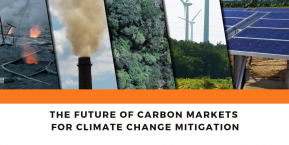The private sector has a critical role to play in addressing climate change by investing in low-carbon technologies, developing new technologies, and building climate resilience into its investments and operations. Private sector financing will also be critical for meeting the needs for global finance flows, but climate finance from the private sector has been very low. One reason for this is that most countries lack a conducive enabling environment for the private sector to engage in climate action.
This evaluation assesses the World Bank Group’s efforts to improve the enabling environment for private sector climate action (EEPSCA). The evaluation defines the private sector enabling environment for climate action as the set of policies (laws and regulations), incentives, standards, information, and institutions that encourage or facilitate the private sector to invest or behave in ways that reduce greenhouse gas emissions or adapt to the current or anticipated impacts of climate change. The private sector includes large, medium, and small firms; domestic and international financiers; and smallholder farmers or other producers.
The evaluation assesses the relevance and effectiveness of Bank Group support to EEPSCA and aims to identify lessons applicable to the World Bank and the International Finance Corporation to inform implementation of the Bank Group Climate Change Action Plan 2021 and subsequent Bank Group climate activities. The evaluation also aims to inform discussions on the evolution road map, which considers further increasing the prominence of the role the Bank Group plays on global public goods, such as climate change.














